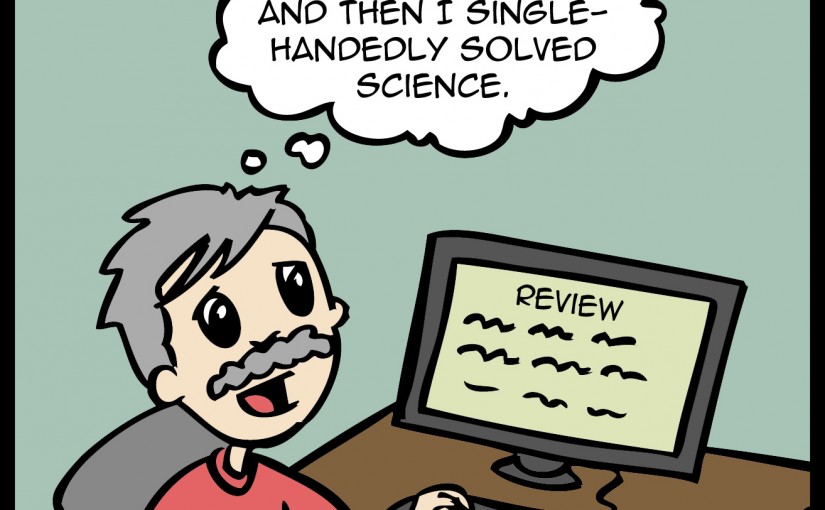Reviews are generally not co-written by people of opposing opinions. They are views of one individual or lab and can be heavily biased towards one point of view. Most likely, they will also give disproportionate weight to their own research.
Read multiple reviews from different labs, and, whenever you can, read the primary research.
Get Practical Tips- Whenever a review on a subject says something is incorrect or debatable, look up the paper they are talking about and see if that author wrote a review on the subject. This is likely to be a good source of the opposite opinion.
- For the important points within a review, make sure you look at the primary data. It is not so rare that people misinterpret other people’s work according to their own biases.
- Don’t reference reviews in your thesis. If you can’t find the primary research that shows something, then you don’t know it’s true. There are plenty of myths out there.
- The exception to the above tip is direct quotes of someone’s opinion – which can come from reviews.
- Don’t judge the strength of conclusions based on the opinions of reviewers. Sometimes, the reasons people write “showed” instead of “indicated,” can be arbitrary. Read the primary data and come to your own conclusion on the strength of the data.
- If the reviews you read are older, then it is important to check more recent discussions of the subject. Perhaps bits have been disproved or expanded on. Your examiners will want to know your knowledge is current.
Read Personal Perspective
I’ve read multiple reviews where the author has ignored or downplayed evidence that runs contradictory to their argument. Simply basing your discussion on one person’s opinion can make your thesis look biased or sometimes even wrong. If the review is older it can even be talking about information that has since been disproved as if it is still current.
